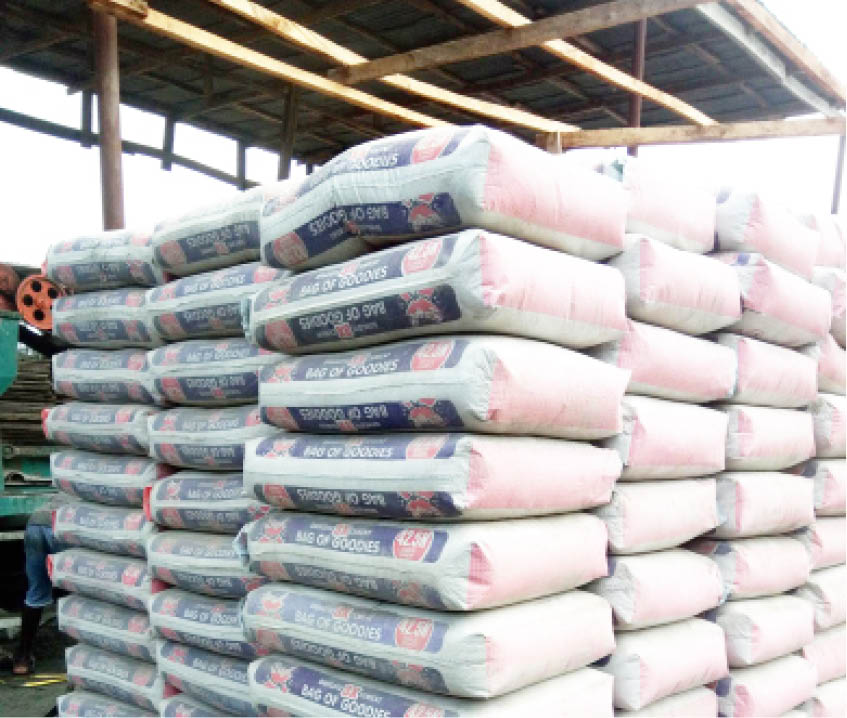Understanding The Cost Of Cement In Nigeria: Factors And Implications
The construction industry in Nigeria is booming, driven by the country's growing population and urbanization. As the demand for housing, infrastructure, and commercial buildings increases, so does the need for cement, a vital component in construction. The cost of cement in Nigeria has become a topic of significant interest and concern for builders, contractors, and homeowners alike. Understanding how pricing works can help stakeholders make informed decisions in their projects.
The price of cement is influenced by various factors including supply chain dynamics, production costs, and government regulations. Additionally, fluctuations in the global market can also affect local prices. For many, cement is not just a construction material but a critical investment that can dictate the success or failure of building projects. As such, staying informed about the current cost of cement in Nigeria is essential for effective budgeting and planning.
In this article, we will explore the various aspects that contribute to the cost of cement in Nigeria, including market trends, regional price variations, and future forecasts. Whether you are a contractor, a homeowner, or someone interested in the construction sector, understanding these elements will provide you with valuable insights into the ever-evolving landscape of cement pricing in Nigeria.
What Are the Current Prices of Cement in Nigeria?
The current price of cement in Nigeria varies based on location and brand. Generally, a 50 kg bag of cement can range from ₦3,500 to ₦5,000, depending on the market and availability. Major brands like Dangote Cement, Lafarge, and BUA Cement dominate the market, each with its pricing strategy. The prices can fluctuate due to factors like transportation costs, demand, and economic conditions.
What Factors Influence the Cost of Cement in Nigeria?
Several key factors play a role in determining the cost of cement in Nigeria:
- Production Costs: The price of raw materials, energy, and labor directly affects production costs, which in turn impacts retail prices.
- Transportation: The cost of transporting cement from production facilities to retail outlets can vary significantly based on the distance and road conditions.
- Market Demand: During peak construction seasons, demand spikes, leading to potential price increases.
- Government Policies: Import duties and regulations can affect the availability and pricing of imported cement.
- Competition: The presence of multiple cement brands and their pricing strategies can create competitive pricing in the market.
How Do Regional Differences Affect Cement Prices?
Regional variations in the cost of cement are quite pronounced in Nigeria. Here’s how:
- Urban vs. Rural Areas: Urban areas often experience higher prices due to demand and transportation costs, whereas rural areas may have lower prices but limited availability.
- Accessibility: Regions with better access to roads and infrastructure typically have lower transportation costs, leading to more competitive prices.
- Local Supply: Areas with local cement production facilities may benefit from reduced prices compared to regions reliant on imports.
What Are the Future Trends for Cement Prices in Nigeria?
Predicting the future cost of cement in Nigeria involves considering various economic indicators and market trends:
- Economic Growth: If Nigeria’s economy continues to grow, demand for cement is likely to rise, potentially driving prices up.
- Investment in Infrastructure: Government initiatives aimed at infrastructure development can lead to increased demand and thus higher costs.
- Global Market Trends: Fluctuations in the global raw materials market can impact local cement prices.
How Can Consumers Get the Best Prices for Cement?
For consumers looking to purchase cement at the best prices, consider the following strategies:
- Bulk Purchasing: Buying in bulk can often lead to discounts.
- Comparison Shopping: Check prices at multiple retailers to find the best deal.
- Timing: Purchase during off-peak seasons when demand is lower.
What Is the Impact of Cement Prices on Construction Projects?
The cost of cement can significantly affect construction projects in several ways:
- Budgeting: Higher cement prices can lead to increased overall project costs, necessitating budget adjustments.
- Project Delays: Sudden price hikes may result in project delays if additional funding is required.
- Material Choices: Fluctuating prices may influence the choice of materials used in construction.
In conclusion, the cost of cement in Nigeria is a multifaceted issue influenced by various factors, from production costs to regional variations. Staying informed about current market trends and potential future changes can help stakeholders navigate the complexities of budgeting and planning in the construction industry.
Unveiling The Wealth: The Jasen Johnson Luper Net Worth Journey
Finding Closure: The Power Of Done Trying Quotes
Inspiring Women Back Tattoo Ideas To Express Your Unique Style


